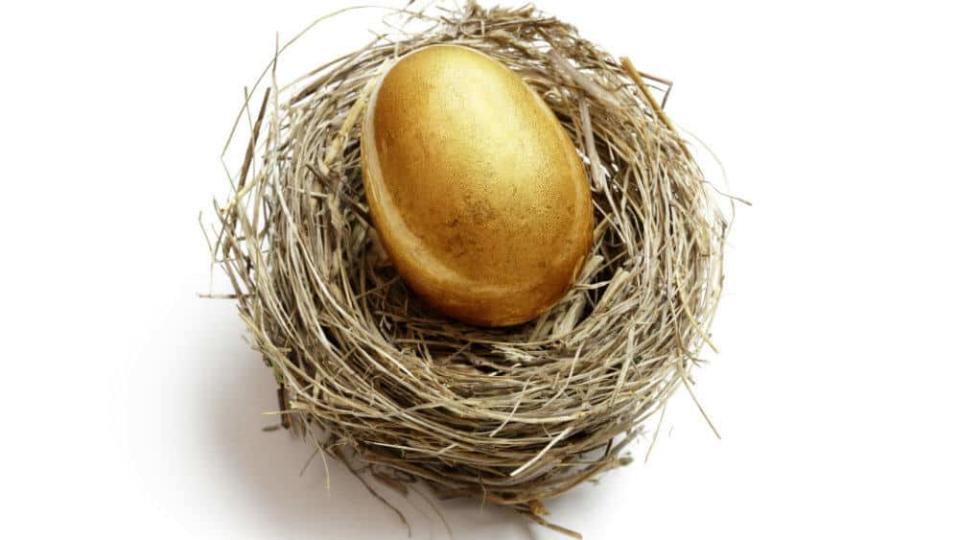Are You Eligible for the GST/HST Refund in 2024?

Written by Aditya Raghunath at The Motley Fool Canada
The goods and services tax/harmonized sales tax (GST/HST) credit is a tax-sheltered quarterly payout that helps low- and modest-income households offset their GST or HST payments. This tax credit may include payments from provincial and territorial programs.
According to the Canada Revenue Agency (CRA), you are eligible for the GST/HST credit if you are a Canadian resident over the age of 19.
How much should you get via the GST/HST tax credit?
The amount you receive via the tax credit depends on factors such as your net family income, marital status, and whether you have any children. To qualify for the credit, your adjusted net family income must be lower than a certain threshold. For the 2022 base year (payment period from July 2023 to June 2024), the threshold for the tax credit ranges from $52,255 to $69,105.
The maximum GST/HST tax credit for an individual is $496, while it increases to $650 for married couples. Eligible Canadians will receive $171 for each child below the age of 19.
It’s essential to keep your personal information updated to avoid underpayments or overpayments by the CRA. For instance, an increase in a family’s net income would affect these payments starting in July 2024.
Reinvest these tax credits in quality index funds
Despite macro headwinds such as rising interest rates and inflation, it’s essential to put the payouts from these tax credits to work. The only way Canadians can lead a comfortable life in retirement is by investing in inflation-beating assets and benefiting from the power of compounding.
One asset class that has consistently outpaced inflation is equities. For example, the S&P 500 Index has returned over 10% annually in the last five decades.
While the payouts from the tax credits might not seem too large at first, investing the benefits in low-cost index funds that track the S&P 500 Index can help you create a retirement nest egg over time.
Given an annual rate of return of 10%, a $200 monthly investment would balloon to more than $455,000 over 30 years. If you are able to save $500 each month, your investment would be worth $1.14 million after three decades, at 10%.
One low-cost index fund that tracks the S&P 500 is the Vanguard S&P 500 Index ETF (TSX:VSP). Investing in quality index funds provides diversification at a low cost, which reduces investment risks. It might seem attractive to invest in other sophisticated products that aim to beat the broader markets. However, you should understand that more than 80% of large-cap mutual funds fail to beat the benchmark index.
The top holdings of the VSP ETF include tech giants such as Microsoft, Apple, Nvidia, Meta, Amazon, and Alphabet, which account for more than 20% of the fund. In fact, the high-growth tech sector accounts for 30.5% of the VSP, followed by healthcare at 12.8%, financial services at 12.65%, and consumer cyclical at 10.5%.
While the VSP ETF might seem tech-heavy, it provides exposure to some of the largest companies in the world. Moreover, the fund offers a dividend yield of 1%.
The post Are You Eligible for the GST/HST Refund in 2024? appeared first on The Motley Fool Canada.
Should you invest $1,000 in Vanguard S&p 500 Index Etf (cad-hedged) right now?
Before you buy stock in Vanguard S&p 500 Index Etf (cad-hedged), consider this:
The Motley Fool Stock Advisor Canada analyst team just identified what they believe are the 10 best stocks for investors to buy now… and Vanguard S&p 500 Index Etf (cad-hedged) wasn’t one of them. The 10 stocks that made the cut could potentially produce monster returns in the coming years.
Consider MercadoLibre, which we first recommended on January 8, 2014 ... if you invested $1,000 in the “eBay of Latin America” at the time of our recommendation, you’d have $15,578.55!*
Stock Advisor Canada provides investors with an easy-to-follow blueprint for success, including guidance on building a portfolio, regular updates from analysts, and two new stock picks each month – one from Canada and one from the U.S. The Stock Advisor Canada service has outperformed the return of S&P/TSX Composite Index by 32 percentage points since 2013*.
See the 10 stocks * Returns as of 3/20/24
More reading
Can You Guess the 10 Most Popular Canadian Stocks? (If You Own Them, You Might Be Losing Out.)
How to Build a Bulletproof Monthly Passive-Income Portfolio in 2024 With Just $25,000
Suzanne Frey, an executive at Alphabet, is a member of The Motley Fool’s board of directors. Randi Zuckerberg, a former director of market development and spokeswoman for Facebook and sister to Meta Platforms CEO Mark Zuckerberg, is a member of The Motley Fool's board of directors. John Mackey, former CEO of Whole Foods Market, an Amazon subsidiary, is a member of The Motley Fool’s board of directors. Fool contributor Aditya Raghunath has no position in any of the stocks mentioned. The Motley Fool recommends Alphabet, Amazon, Apple, Meta Platforms, Microsoft, and Nvidia. The Motley Fool has a disclosure policy.
2024

 Yahoo Finance
Yahoo Finance 